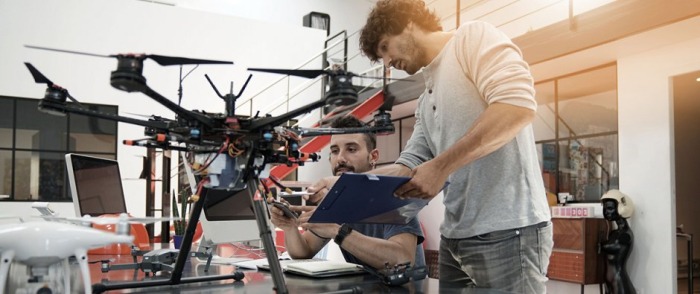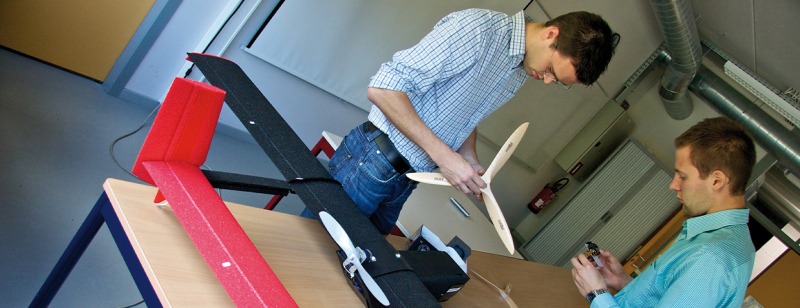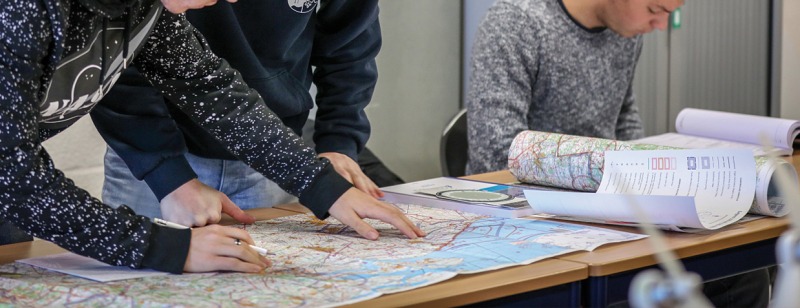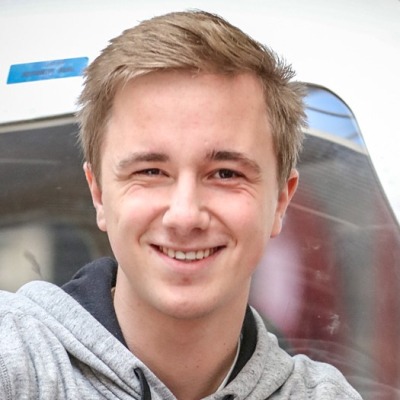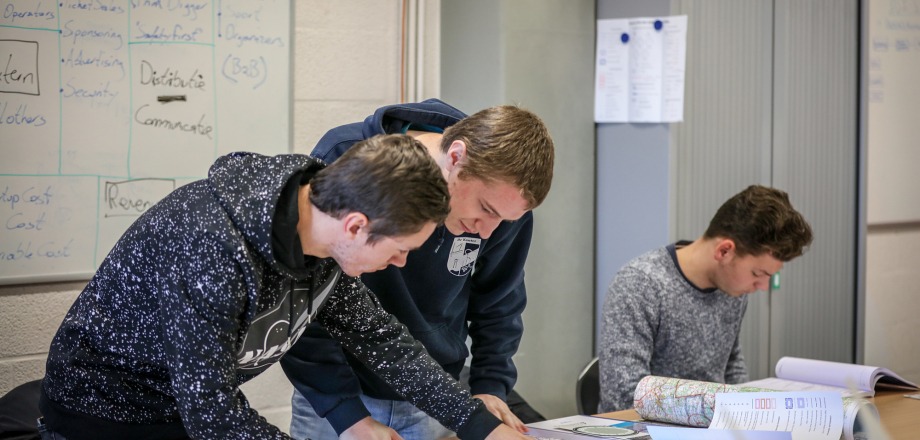Learn how to fly, design, build and maintain drones with this programme, specialising in the newest aviation branch.
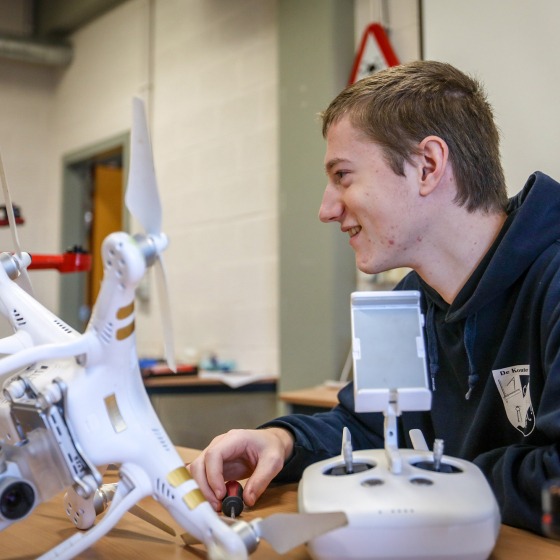
Discover the broad applicability of drones in sectors such as agriculture, security and events, and acquire your knowledge directly from the research results of our own expertise centre DroneLab.
Unmanned Aircraft Systems is the minor within the major Aeronautical Engineering, and will be your specialisation during the final year of your programme. The use of drones (officially called Remotely Piloted Aircraft Systems or RPAS) and the number of applications are increasing rapidly. VIVES even has a real DroneLab, where research has been conducted for years on how drones can be used for various purposes. Drones instead of tractors are no longer science fiction.
The use of drones is essential in today's society, and applications in smart farming, construction, and security will increase rapidly in the coming years. In this specialisation at VIVES, where design, construction, flight, maintenance, various types of operations, applications, and business development come together, you will learn everything about this rapidly growing industry.
Je studie in een oogopslag
Studiegebied
Opleidingstype
Studiewijze
Studieroute
Aantal studiepunten
Waar kan ik dit volgen?
Startmomenten
Onderwijstaal
Heb je een vraag?
Quality
VIVES guarantees the quality of this degree. This is based on the VIVES reference framework and education action plan.
